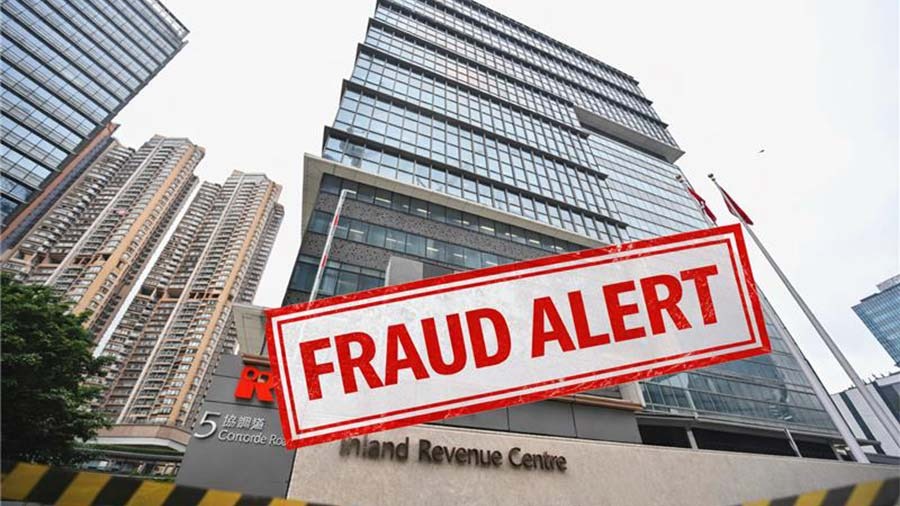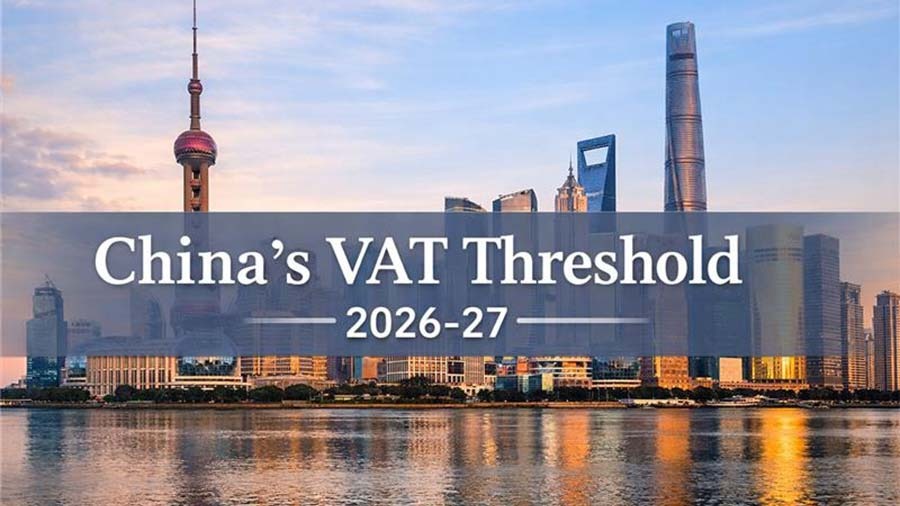China Briefing
China’s MIIT Introduces New Technology Contract Registration Requirements for 2026
02/25/2026China has released updated rules governing the recognition and registration of technology contracts. The new requirements, effective March 1, 2026, are a crucial step for companies to access tech-related tax incentives.
Annual IIT Reconciliation in China 2026: Appointment Booking Opens February 25
02/24/2026China’s annual IIT reconciliation for 2026 is split into two phases, with early filers advised to book appointments in the IIT app. This section outlines eligibility, key timelines, filing methods, and practical preparation steps.
Hong Kong IRD Warns Public About Fraudulent Stamp Duty Certificate Notices
02/13/2026Hong Kong’s IRD has warned the public about fake notices impersonating Stamp Duty Certificate communications. These fraudulent documents often use fabricated tax terms, urgent deadlines, or foreign-currency payment instructions to pressure recipients.
China Clarifies VAT Threshold Under New VAT Law
02/11/2026China’s updated VAT threshold introduces new monthly, quarterly, and per‑transaction rules under the 2026 VAT Law. These changes affect VAT liability, invoicing, and compliance obligations for FIEs.
Hong Kong’s Evolving Double Tax Agreement (DTA) Network 2026
02/09/2026Hong Kong’s double tax agreement network has reached a new milestone, with fresh treaties and active negotiations shaping the 2026 outlook. Understanding how Hong Kong’s DTAs work is essential for investors and multinationals planning cross-border operations.
China Monthly Tax Brief: January 2026
02/06/2026January 2026 marked a pivotal month for China’s tax landscape, with the rollout of detailed supporting rules for the VAT Law and its Implementation Regulations.
-
02/06/2026
Hengqin’s 15% Preferential IIT Policy Extended to 2027
China Briefing -
01/22/2026
China Tax Authority Requests Self‑Inspection of Overseas Income for the Past Three Years
China Briefing -
01/20/2026
China Briefing
-
01/08/2026
Understanding Permanent Establishment in China - A Guide for Foreign Companies
China Briefing -
01/07/2026
China Monthly Tax Brief: December 2025
China Briefing
India Briefing
India Tax Calendar March 2026: Guide to Advance Tax, Transfer Pricing, and FTC Filing
02/26/2026As FY 2025-26 approaches its close, March 2026 represents a key compliance period under India’s direct tax framework. Businesses should review the March tax compliance calendar and ensure timely data reconciliation and reporting readiness.
India–France Tax Treaty Revised: Dividend Relief, Capital Gains Changes, and Investor Impact
02/25/2026The revised India–France tax treaty changes dividend taxes, capital gains rights, and compliance rules. Key insights for French investors and India operations.
IGST Applicability on Expatriate Employment in India: Karnataka High Court Provides Tax Clarity
02/21/2026The Karnataka High Court has clarified the GST treatment of expatriate employment in India, ruling that remuneration paid to foreign employees under a genuine employer-employee relationship is not subject to IGST under the reverse charge mechanism.
India's Component Warehousing Safe Harbor: A Competitive Tax Proposition for Global Manufacturers
02/11/2026India’s Budget 2026-27 introduces a 2 percent safe harbor for bonded component warehousing and a five-year tax exemption for non-resident suppliers, offering transfer pricing certainty and strengthening India’s role in global manufacturing supply chains.
India Unveils Draft Income Tax Rules, 2026 Ahead of April 1 Rollout
02/09/2026India’s tax administration has released the draft Income Tax Rules, 2026. The proposal streamlines the compliance framework, reducing it to 333 rules and 190 statutory forms. Public consultation remains open until February 22, 2026.
Budget 2026 Explainer: Tax Clarity and Incentives for Cloud, Data Centers & AI Players
02/02/2026Budget 2026–27 elevates data centers to strategic infrastructure, pairing tax exemptions and regulatory certainty with India’s fast-growing digital demand. For global cloud players, India is moving from an emerging data center market to a scale-and-stability play position.
-
02/02/2026
Budget 2026 Resets GIFT City Economics for Banks with 20-Year IBU Tax Holiday
India Briefing -
01/30/2026
What the Binny Bansal Tax Residency Ruling Means for HNIs Moving Abroad
India Briefing -
01/22/2026
US Parent-India Subsidiary: Transfer Pricing and Intercompany Agreements
India Briefing -
01/19/2026
Tiger Global-Flipkart Tax Dispute: A Landmark Test of India’s Anti-Avoidance Regime
India Briefing -
01/07/2026
An Introduction to Doing Business in India 2026 - New Publication Out Now
India Briefing
Vietnam Briefing
EU Adds Vietnam to its List of Non-Cooperative Jurisdictions: Tax and Compliance Implications
02/22/2026In February, the EU added Vietnam to its non-cooperative tax list following an OECD review, as part of its biannual assessment of tax transparency, fair taxation, and anti-BEPS compliance.
Understanding Vietnam’s Tax Regulations for Overseas Digital Service Providers
02/19/2026Understand Vietnam’s tax compliance rules for overseas digital suppliers, including registration, filing obligations, withholding rules, and treaty considerations.
Driving FDI Manufacturing Success in Vietnam with Microsoft Dynamics 365 Business Central
02/15/2026Discover how Microsoft Dynamics 365 Business Central helps foreign manufacturers in Vietnam ensure compliance, optimize supply chains, and scale operations efficiently.
Driving Vietnam’s Private Sector Growth: Core Incentives Introduced by Decree 20/2026
02/10/2026Vietnam’s Decree No. 20/2026/ND-CP outlines incentives for private-sector development, covering taxes, fees, land, and human resources.
Fraud Prevention and Investigation in Vietnam: Guidance for Foreign Investors
02/03/2026Vietnam’s fraud risks often stem from weak internal controls, excessive trust in local partners, or fast growth without adequate governance frameworks. Proactive fraud prevention and building transparent systems are essential to safeguarding operations.
Preparing for Vietnam’s Special Consumption Tax Changes in 2026: Key Compliance Highlights
01/28/2026Vietnam applies new Special Consumption Tax rules from January 1, 2026, detailing key changes and compliance impacts for businesses.
-
01/27/2026
Vietnam Abolishes Business License Tax from 2026
Vietnam Briefing -
01/20/2026
Understanding Key Indirect and International Taxes in Vietnam
Vietnam Briefing -
01/09/2026
Understanding Functional Currency in Vietnam’s Accounting Regime
Vietnam Briefing -
01/05/2026
Administrative Penalties for Tax and Invoice Violations in Vietnam
Vietnam Briefing -
12/31/2025
Vietnam’s Tax and Accounting Updates for Businesses in 2026
Vietnam Briefing
ASEAN Briefing
Singapore RHQ and IHQ Incentives: What Multinationals Should Know
02/25/2026Learn how Singapore RHQ and IHQ incentives work, including eligibility, tax benefits, and risks for multinational headquarters.
Tax Treatment of Intercompany Funding and Royalties in Malaysia
02/20/2026Explore how Malaysia taxes intercompany loans and royalty payments, including withholding tax, EBITDA limits, and structuring considerations.
Selecting the Right Transfer Pricing Method in Vietnam: TNMM, CUP, or Cost-Plus
02/13/2026Foreign investors assessing TNMM, CUP, or Cost-Plus in Vietnam must align profit allocation with audit risk and enforcement practice.
Vietnam Year-End Closing and Audit Preparation for Foreign-Invested Enterprises
02/11/2026Foreign investors should assess Vietnam’s year-end closing rules, statutory audits, tax risks, and profit repatriation limits.
Understanding Capital Gains Treatment for Share and Asset Transfers in the Philippines
02/05/2026Share vs asset transfers in the Philippines: capital gains, VAT, and corporate tax risks foreign investors must model before exiting.
Capital Injection vs Shareholder Loans: Tax Implications for Foreign Investors in Indonesia
02/04/2026Compare equity and shareholder loans in Indonesia, including tax timing, withholding exposure, and capital recovery implications for foreign investors.
-
01/29/2026
VAT Registration and Ongoing Compliance Considerations in Vietnam
ASEAN Briefing -
01/27/2026
How to Reduce Withholding Tax on Cross-Border Payments in the Philippines
ASEAN Briefing -
01/20/2026
Managing Group Reporting and Consolidation from Vietnam
ASEAN Briefing -
01/15/2026
Withholding Tax Treatment for Cross-Border Payments in Singapore
ASEAN Briefing -
01/13/2026
Profit Repatriation from Indonesia: Tax, Timing, and Execution Considerations
ASEAN Briefing
 Our firm Dezan Shira & Associates provides legal, tax and operational advisory across Asia.
Our firm Dezan Shira & Associates provides legal, tax and operational advisory across Asia. 
























